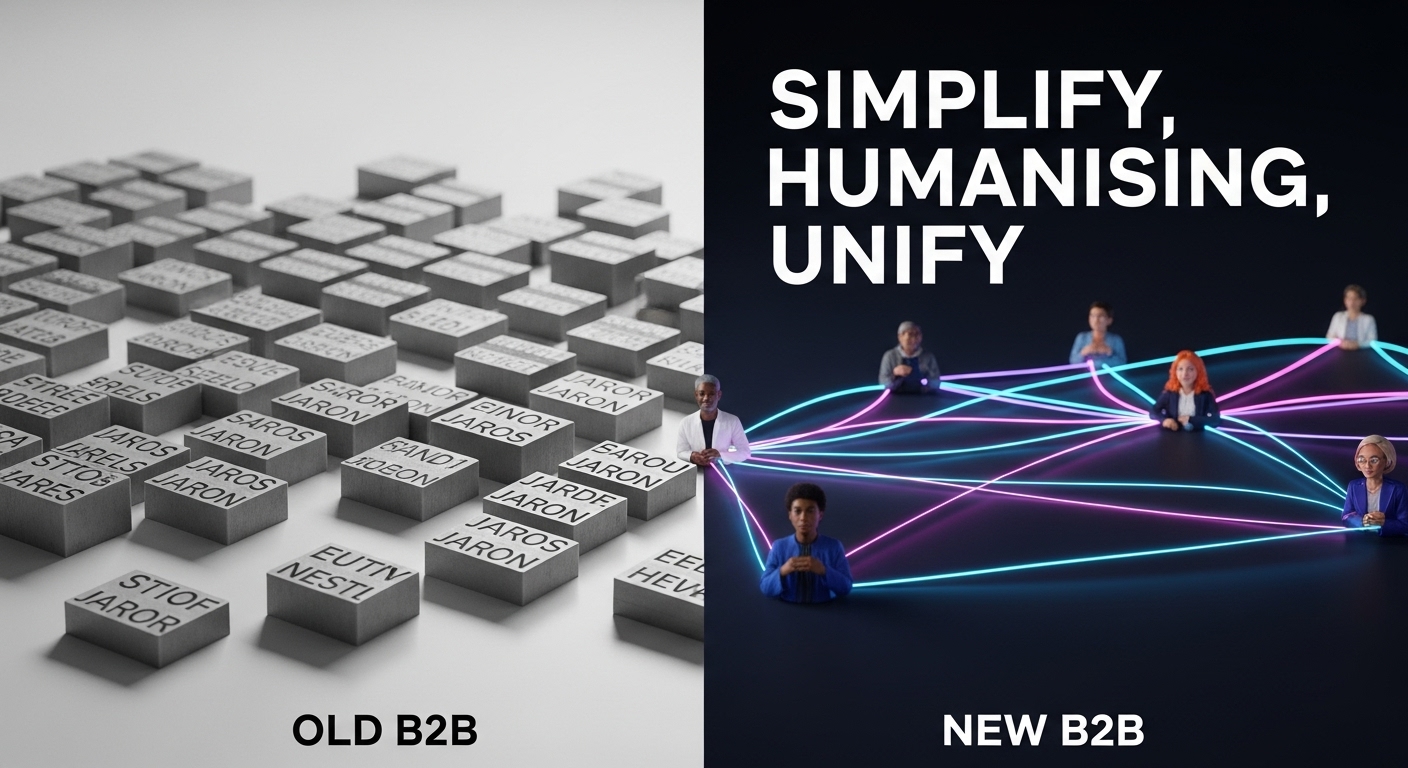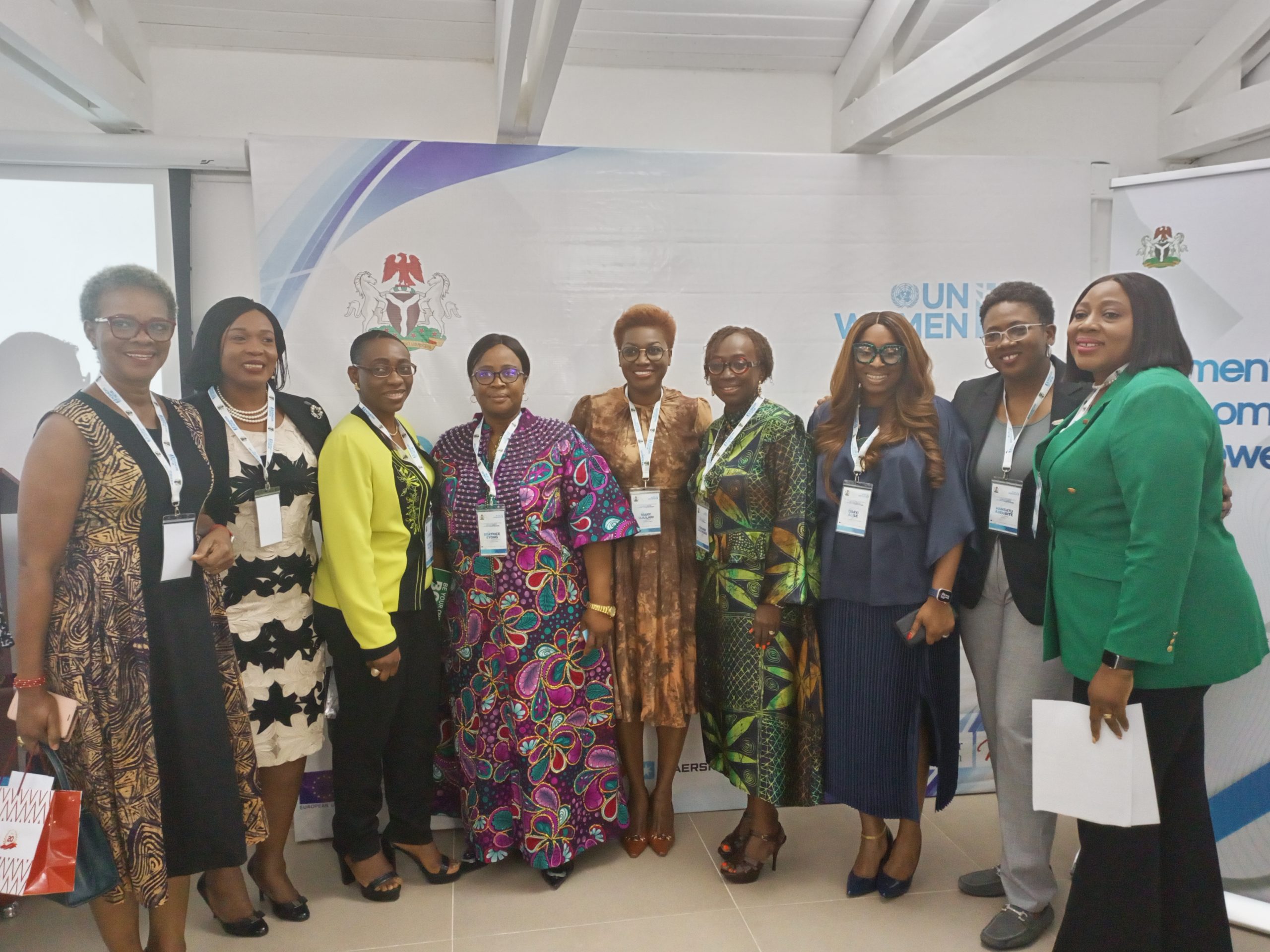For years, B2B marketing has tried to sound smart. However, in doing so, it lost its humanity. Consequently, today’s B2B space has become a sea of sameness, filled with stiff jargon, templated posts about “innovation,” and endless talk of “end-to-end solutions.”
Brands have stories to tell, but too often they have told them in ways no one wants to hear. Nevertheless, that is changing. Across industries—from technology to banking, logistics to consulting—the smartest B2B marketers are rewriting the playbook. Their mantra is simple: Simplify. Humanise. Unify.
From Complicated to Clear
For too long, B2B brands believed that using complex industry language made them sound authoritative. In reality, it only distanced them from the very people they wanted to reach.
Decision-makers scroll through social feeds just like everyone else. Crucially, they do not stop for buzzwords; they stop for clarity.
Brands that stand out today explain what they do in simple, powerful language. For instance, “We provide digital efficiency solutions that boost company workflows” fades in comparison to “We help firms close faster.”
In a competitive market like Nigeria, where attention is scarce and competition fierce, simplicity is a superpower. Ultimately, it helps your audience understand your value instantly.
The Rise of Human B2B
Every company is driven by people who make decisions based on trust, shared values, and emotion. Therefore, the future of B2B marketing lies not in products, but in people.
The best-performing brands on LinkedIn and X do not brag. Instead, they tell stories; real stories about wins, lessons, and the humans behind their success.
For example, consider platforms like PiggyVest Business and Flutterwave. Instead of announcing partnerships with cold press statements, they spotlight the entrepreneurs and SMEs that these collaborations empower. That is business-to-business with a human touch.
In short, when brands focus on people, engagement rises, credibility grows, and their stories stick. People may forget a pitch deck, but they will remember how your message made them feel.
Unify the Story, Not the Slogan
Audiences now meet brands everywhere: a tweet, a webinar, a press release, or a panel discussion. Therefore, consistency across these touchpoints is what turns a message into meaning.
Unity does not stop at social media. More importantly, it starts from within, in your voice, visuals, company culture, and customer experience. Whether someone reads your newsletter or speaks with your sales team, they should feel like they are interacting with the same brand personality.
Inconsistency quietly kills credibility. Conversely, unity builds trust, and where trust exists, business thrives.
From Boring to Beloved
The problem with most B2B content is not the lack of material; it is the lack of courage. To put it simply, brands need the courage to show personality, the confidence to simplify, and the conviction to bring humanity back to business.
Talking about creativity is no longer enough. Instead, brands must show it in the way they communicate. The most magnetic B2B brands borrow ideas from entertainment, culture, and lifestyle. They use humour, design, and relatable storytelling to make complex products feel simple and human.
A logistics brand feels more authentic when it sounds like it understands Lagos traffic. Similarly, a fintech platform feels credible when it speaks like it belongs in both the boardroom and the marketplace.
The Future Belongs to the Brave
Therefore, tomorrow’s standout B2B brands will not be the loudest; they will be the clearest. They will strike a balance between precision and emotion, presenting facts with empathy.
Marketers of the future must let their messages sing. They should give their brands life and bring their stories together in ways people genuinely connect with.
Ultimately, in today’s crowded digital landscape, the most powerful thing a brand can be is understood.
ALSO WATCH MARKETING EDGE ONTV







Comment
No comments found.